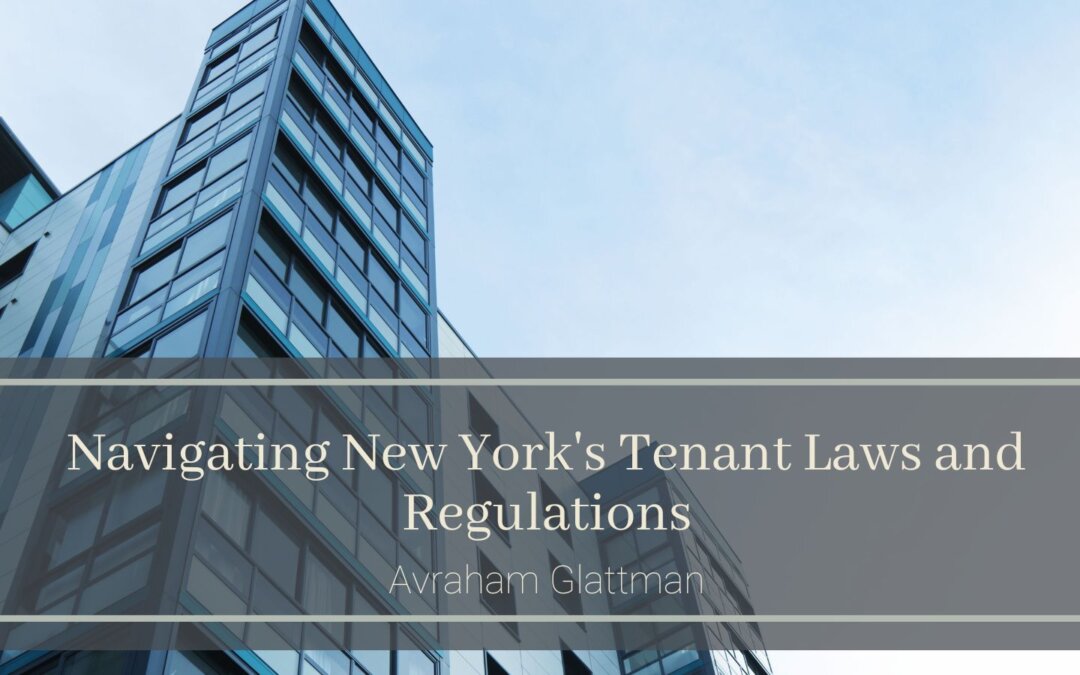New York is a vibrant and dynamic state with a diverse population, and the rental market is a significant part of its urban landscape. If you’re a tenant or a prospective tenant in the Empire State, it’s crucial to understand the various laws and regulations that govern your rights and responsibilities. Navigating New York’s tenant laws can help ensure a smooth and harmonious renting experience.
Rent Stabilization and Rent Control
One of the most critical aspects of New York’s tenant laws is rent stabilization and rent control. These regulations protect tenants from exorbitant rent increases and stabilize the rental market. Rent-stabilized and rent-controlled apartments limit how much the landlord can increase yearly rent. However, these regulations apply only to specific units and properties, and it’s essential to determine whether your apartment falls under these rules.
Security Deposits
New York law regulates the collection and return of security deposits. Landlords can only charge a specific amount as a security deposit, and they must return it within a certain period after you move out, minus any allowable deductions. Document the apartment’s condition before moving in and record all correspondence related to the security deposit.
Repairs and Maintenance
Landlords in New York have a legal responsibility to maintain their properties in a safe and habitable condition. If you have maintenance or repair issues, promptly inform your landlord in writing. If the landlord fails to address these issues, there are legal avenues you can pursue to compel them to make necessary repairs.
Tenant’s Right to Privacy
New York law safeguards a tenant’s right to privacy. Landlords must provide reasonable notice before entering your rental unit, except in emergencies. The notice typically ranges from 24 to 48 hours. Understanding your right to privacy is essential, ensuring you can enjoy your home without undue intrusion.
Discrimination Laws
New York has strong anti-discrimination laws that protect tenants from discrimination based on various factors, including race, religion, gender, sexual orientation, and more. If you believe you’ve been a victim of housing discrimination, you can file a complaint with the New York State Division of Human Rights.
Evictions and Lease Terminations
New York’s tenant laws specify the grounds on which a landlord can evict a tenant. Non-payment of rent, lease violations, and creating a nuisance are some common reasons for eviction. It’s crucial to understand your lease terms and adhere to them to avoid eviction. If you face eviction, you have legal rights and can challenge it in court.
Required Disclosures
Landlords are legally required to provide certain disclosures to tenants. These may include lead-based paint disclosures for older buildings, information about rent stabilization status, and notices regarding bedbug infestations. Understanding these disclosures can help you make informed decisions about your rental property.
Lease Agreements
Lease agreements in New York can vary, but they typically outline the terms of your tenancy, including the rent amount, the duration of the lease, and the responsibilities of both the landlord and the tenant. Reviewing your lease agreement thoroughly before signing is crucial to ensure you are comfortable with its terms.
Conclusion
Navigating New York’s tenant laws and regulations is essential for current and prospective tenants. Understanding your rights and responsibilities helps you make informed decisions and protect your interests. It’s also advisable to seek legal advice or consult a tenant’s rights organization if you encounter issues or questions about your rental property. By staying informed and proactive, you can ensure a smoother and more secure rental experience in the Empire State.
